
Student Startups Take Flight from the Tuck Startup Incubator
Tuck’s powerful Startup Incubator worked with 26 Tuck and Dartmouth student teams this spring to launch and grow new businesses.
By Kirk Kardashian
Aug 11, 2020

Since its founding in 2018, the Tuck Startup Incubator has played a crucial role in the birth and development of dozens of startups with connections to Tuck and Dartmouth students.
Since its founding in 2018, the Tuck Startup Incubator has played a crucial role in the birth and development of dozens of startups with connections to Tuck and Dartmouth students.
This spring was no different, even though the three-hour weekly cohort meetings with professors Steve Kahl D’91 and Daniella Reichstetter T’07 were held remotely. The Startup Incubator, which is run by the Tuck Center for Entrepreneurship, in collaboration with the Magnuson Center for Entrepreneurship at Dartmouth, worked with 26 teams from Tuck and Dartmouth on businesses ranging from hard seltzer to black hair care to biologic therapeutics.
Throughout the course of the spring term, the cohorts worked through the typical process of ideating and launching a new business, focusing on customer discovery, product development, and beginning the sales process. They are aided in this by the expertise of the Center’s faculty and staff, and by a dynamic group of advisors and mentors that the Center brings in to give general startup advice, as well as advice on technical topics such as corporate law, intellectual property, marketing strategy and financial modeling. Moreover, the student teams provide camaraderie for each other, sharing feedback, celebrating victories, and working through the roadblocks that so often surface along the entrepreneurial journey.
“I am really proud of all of our incubator teams this year—37 discrete teams across three terms, many of whom joined the incubator for more than one term as their businesses continued to gain traction or pivot,” says Reichstetter. “There is a tremendous sense of optimism and resourcefulness among our startup cohorts, a continuous willingness to meet the myriad challenges of starting a company. This resilience is an important tool for building robust leadership skills, regardless of the startup’s outcome. This spring, resilience came in quite handy, as students worked tirelessly to keep their ventures moving forward, despite fully-remote meetings and halted supply chains.”
Reichstetter is also grateful for the support from the Tuck and Dartmouth community. “It takes a village to incubate a successful startup,” she says, “and we are fortunate to have many loyal supporters who give very generously of their time and expertise. Our teams benefit tremendously from the strength of this network.”
Here’s a closer look at four of the student startups from this spring’s incubator.
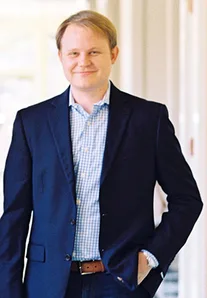
VesprSolar founder Robert Sewell T'21
VesprSolar is transforming the last mile of solar installation with the V-Clamp, a low-cost fastening solution that improves the strength, resiliency, and ease of installation for solar panel arrays.
While he was working at Deloitte Consulting in 2017, Robert Sewell T’21 was introduced to the solar hardware technologies under development at Georgia Tech. Prices for solar panels had already dropped tremendously since the 1980s, but solar installation, which accounted for over $7 billion in 2018, offered a huge opportunity to improve the cost structure of solar. Partnering with Dr. Andres Cavieres, who was a Ph.D. student at Georgia Tech at the time, they discovered that “a shocking amount of labor goes into the last step of the installation: the physical securing of a PV module to the underlying structure,” Sewell says. Most installers were using nuts and bolts for this, which was not only slow but also made the panels prone to loosening during high winds. Sewell and Cavieres, now an assistant professor at the University of Oklahoma, came up with a better solution: a 13-gram clamp that makes the attachment process three times faster and more secure. The V-Clamp provides a standardized approach for attaching PV modules that results in stronger, more resilient PV arrays that can be installed weeks faster.
"The resources at Tuck have been instrumental in helping me grow VesprSolar from an idea to a fully-fledged business with the potential to significantly drive down costs for the solar industry."
Before coming to Tuck, Sewell left his job at Deloitte a few weeks early and spent the time applying for the U.S. Department of Energy’s American-made Solar Competition, a three-part contest that provides non-dilutive grant funding for top innovations in solar. About three weeks into his MBA career, he learned that VesprSolar had won the first round of the competition, garnering $50,000 to finance development of the V-Clamp. He spent the next six months at Tuck working on customer discovery and market development with the Center for Entrepreneurship and the Startup Incubator. In March, the company won the second round of the competition, with the V-Clamp recognized as a top-10 innovation in solar by the U.S. Department of Energy and awarded an additional $175,000. VesprSolar, which has grown to an eight-person team and is conducting pilots across the U.S. and Europe this fall, is now one of 10 companies competing for the competition’s $575,000 grand prize in August. “The resources at Tuck have been instrumental in helping me grow VesprSolar from an idea to a fully-fledged business with the potential to significantly drive down costs for the solar industry,” Sewell says.
“The connections I’ve made through the Incubator have been incredible,” Sewell says. “Tuck has quite a few solar leaders among its alumni, including several extremely successful innovators in solar hardware and development. But more importantly, the Incubator helped me understand what it takes to build a venture-backed business. The one-on-one guidance from Daniella Reichstetter, Jim Feuille, and Trip Davis, as well as many others, helped me map out a clear path forward from a prototype to a fully-commercial product within twelve months.”
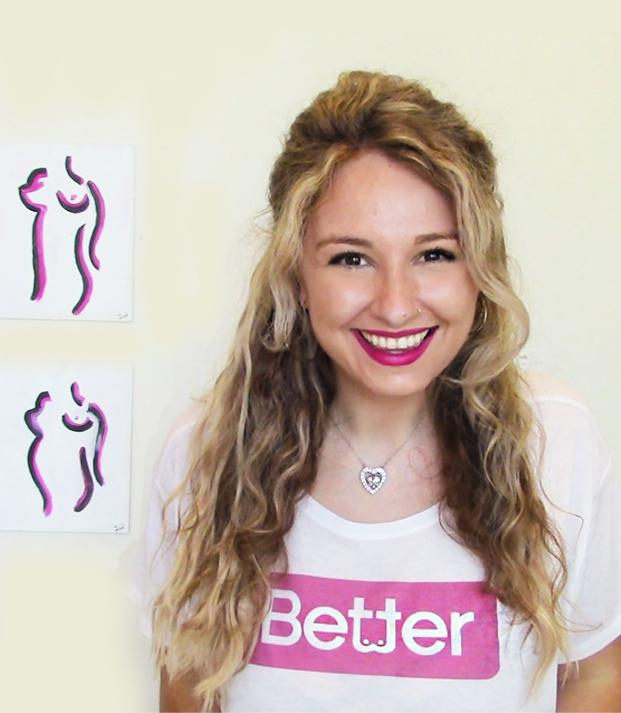
BetterBra founder Lindsey Weiss T’21
BetterBra is a brand new, state-of-the-art nursing bra that is self-adjustable up to three cup sizes. It is the first nursing bra a woman can wear through every stage of her breastfeeding journey.
Some people go to business school and end up starting a business. Lindsey Weiss T’21 came to Tuck specifically to get the skills to make her business idea thrive. She had been working in foreign defense policy and had an idea for a bra that addresses breast asymmetry. Once she got to Tuck and started doing customer interviews, she realized that the best way to enter the market was through the nursing bra business. She learned about that market by interviewing 150 breastfeeding women, along with 150 other stakeholders, such as OB-GYNs, doulas, and lactation consultants. “Women’s breasts fluctuate three to five cup sizes on average when they are breast feeding,” Weiss says, “which translates into six to eight different bras per pregnancy at the very least.” BetterBra solves that by being self-adjustable up to three cup sizes, so a breastfeeding mom can always get the right fit.
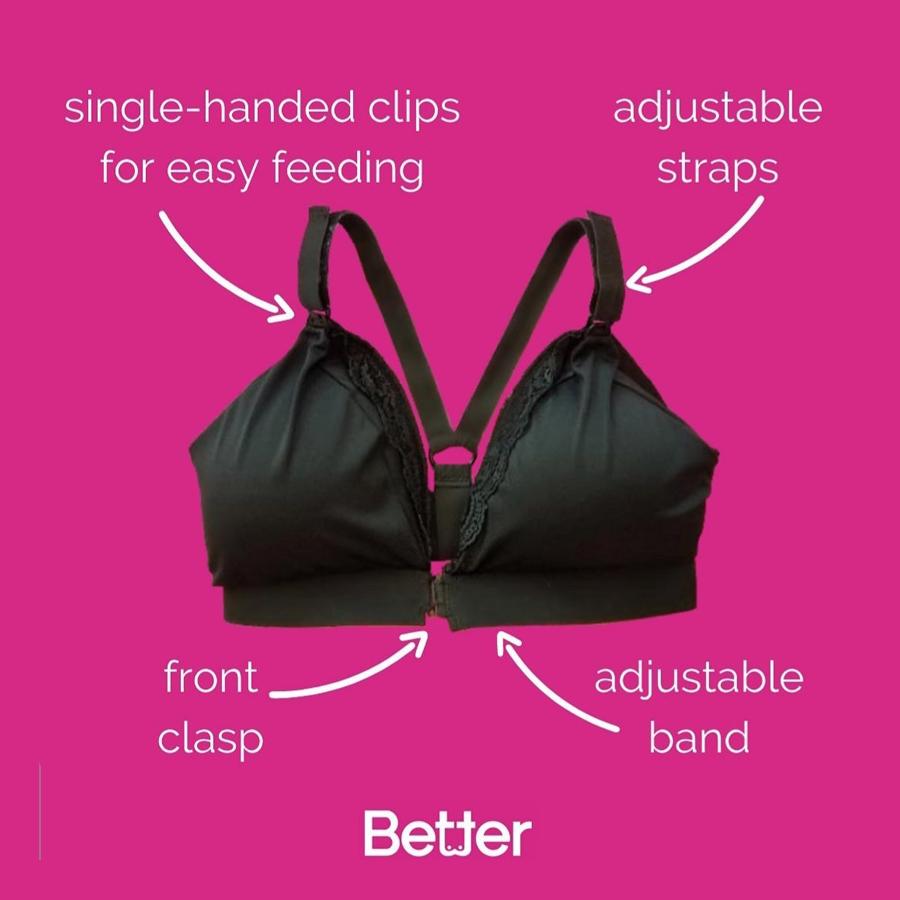
Weiss is the first one to admit she’s working on an age-old problem that should have been solved by now. Why hasn’t it? “Because of the lack of innovation that has been put into female-focused products,” Weiss says. “Thankfully, there’s a growing trend in the last few years of by-women, for-women businesses that have been tackling really specific needs around womanhood in general.” BetterBra, of course, is an example of that trend, and it carries the female-focused ethos through its supply chain, which is entirely female-owned.
Thus far, Weiss has gone through five rounds of prototyping. She hit upon the perfect material and design by partnering with a seamstress who used to work for the undergarment manufacturer Spanx. It uses a reinforced Velcro-like material so the straps and band can be adjusted easily with one hand, accommodating asymmetrical breast sizes and the natural fluctuation of the ribcage after pregnancy.
Weiss has big plans for the next six months. She just launched BetterBra’s Kickstarter campaign, and soon will open the company’s direct-to-consumer e-commerce site. “It feels like the accumulation of everything I’ve learned in business school so far,” she says.
“I needed a lot of handholding when I first started at Tuck,” Weiss says. “I had no idea what to do. The incubator gave me a clear path and provided me with the resources I needed, such as funding and sources of funding, mentors and advisors, and help with building a detailed financial model. It’s been invaluable.”
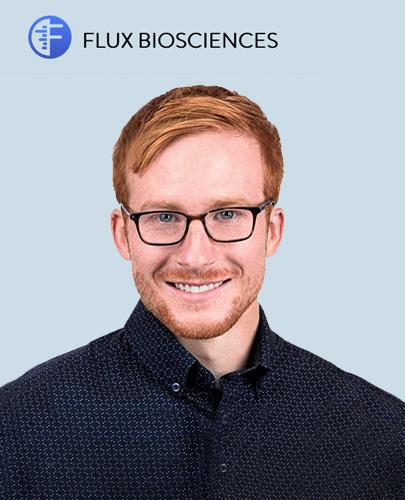
Flux Biosciences co-founder Travis McCain T'21
Flux Bioscience’s core technology evaluates people’s wellness by measuring key biomarkers in blood, urine or saliva. Its first product is an at-home urine test women can use to improve chances of a successful pregnancy by predicting ovulation, detecting a healthy pregnancy, and detecting and treating the most common cause of infertility.
Travis McCain T’21 has been interested in the intersection of health care and product design for more than 10 years. He did his undergraduate work at Stanford, focusing on the application of design to health care delivery. He also has a master’s degree in cellular and integrative physiology from Indiana University School of Medicine, and is finishing up his medical degree from the Geisel School of Medicine at Dartmouth. Before Tuck, McCain worked on surgical devices and health care service design.
In 2017, he teamed up with professor Shan X. Wang, the director of Stanford’s Center for Magnetic Nanotechnology, and Stanford classmate Tyler Shultz, shortly after they founded Flux Biosciences. The company uses a sensor Wang developed in 2000 and has applied in oncology settings with a central laboratory equipped with a giant electromagnet and technicians. Flux is repurposing the sensor so it can be used by individuals in their home. The startup has redesigned the system around the sensor, allowing patients to collect their own biological sample in a small disposable cartridge, which is then inserted into a reader the size of a tissue box. The reader connects to software in the cloud, which analyzes the sample and sends the results to the user’s mobile device. “The technology is wonderful, because you can use it to detect several different things all at once on a single sample, instead of sending it to a lab,” McCain says. “It can be used for female health, or fitness, or more serious health conditions; we just change what the sensor detects. We’ve been working on the actual hardware that will enable this platform of testing in the future.”
"We started with a 3-D printer in the living room, and now we have an office, lab, engineers and a great team. It’s been fun to go from sleeping on the couch to having a real thing going."
McCain and the team at Flux are focusing first on women’s health and testing around the time of pregnancy, an area where customers are already used to self-testing for ovulation. Ovulation test kits available today don’t measure ovulation directly, they measure hormones associated with ovulation, and that can lead to false results. “To know whether or not there’s a problem,” McCain says, “you need to measure several hormones relative to one another, which is what our platform allows us to do.”
Currently, Flux is conducting its first human trial, working on getting patents, and applying for FDA approval. This fall, the company will be fundraising for a bridge to its series-A fundraising push next year. “We started with a 3-D printer in the living room, and now we have an office, lab, engineers and a great team,” McCain says. “It’s been fun to go from sleeping on the couch to having a real thing going.”
“As someone who comes from a technical background and finds the technology interesting, the most useful part of the incubator has been crafting a value proposition and understanding it a lot better than I had beforehand,” says McCain. “It seems easy to brush aside, but it’s crucial to explain why what you’re working on is useful for someone else, without describing any attributes or features of the thing you’re building. We’re really stating clearly what our technology will be able to help people do.”
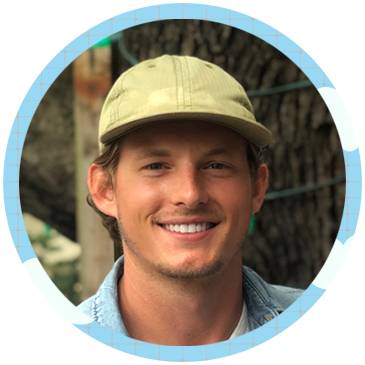
Austin Pittman T'21 co-founded Blue Norther, a hard seltzer company based in Austin, Texas earlier this year. Read more
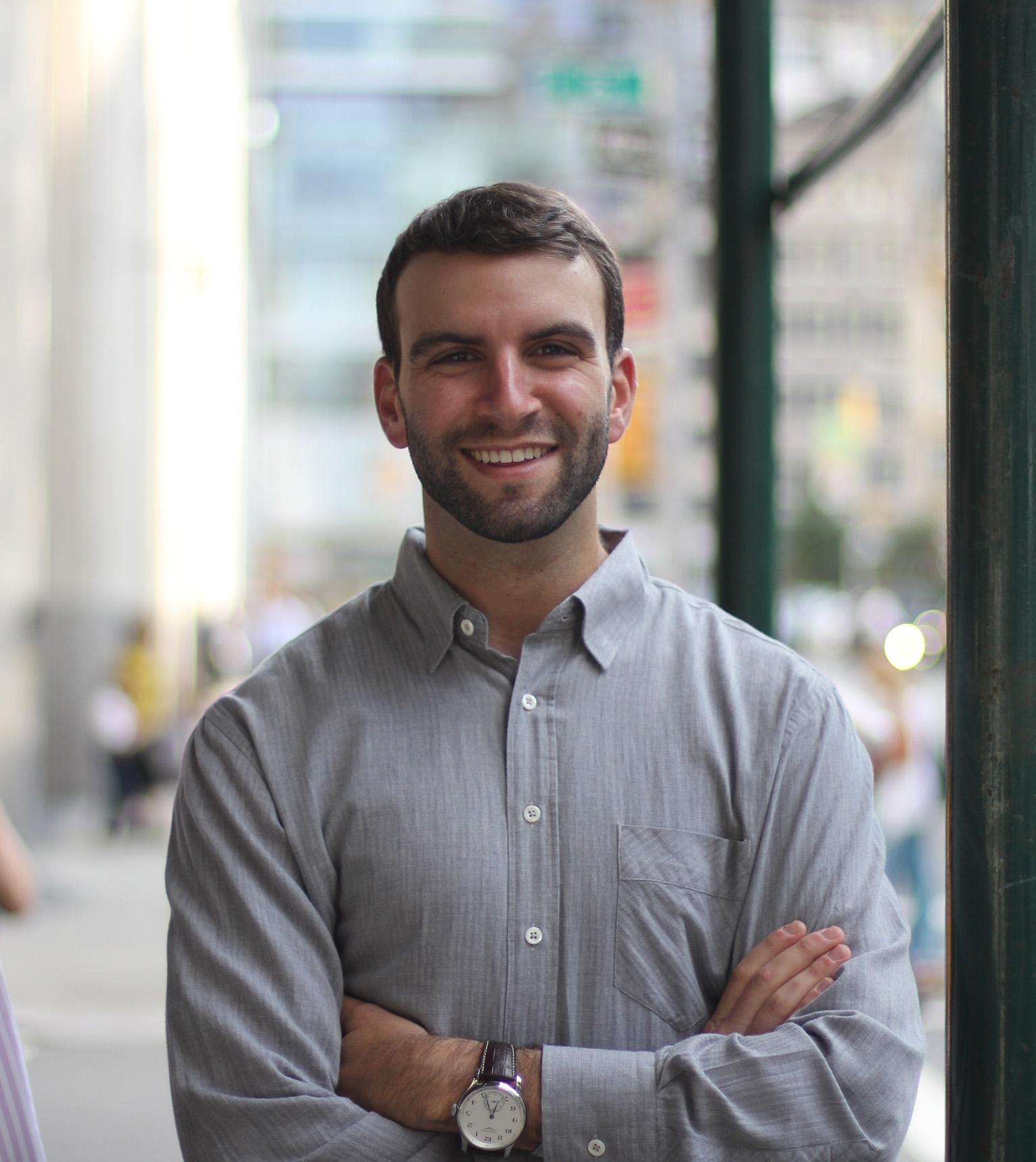
Mysh co-founder David Fayngor T'20
Mysh is your inside scoop into the skincare routines of the people you trust. From application order, frequency, and technique—learn how to perfect your skincare routine.
In the past five years, personalization has taken the skincare industry by storm. People are now regularly mixing and matching products, using serums, and creating routines that work for their particular skin. They’re also sharing what works, taking “shelfies” of their skincare products, and posting on social media about the ingredients and details of their own routines. The problem is, there’s no dedicated space on the internet for this information. It pops up on Facebook, Reddit or Instagram, and it’s hard to know if someone else’s routine would work for you. “We realized there was a need for a digital product to help you search for someone with the same skin issue as you, the same skin tone, or someone using the same products you use,” says David Fayngor T’20. “We want to help people search and learn in a smart way.”
Fayngor has turned that desire into a startup named Mysh (pronounced “meesh”), which is a mash up of “my skin health.” The general idea is that Mysh will be a website and app in the spirit of Pintrest that targets skincare enthusiasts who use a significant number of products. It’s where you can find skincare routines that match your own situation and characteristics, and share the routines that work for you.
"We realized there was a need for a digital product to help you search for someone with the same skin issue as you, the same skin tone, or someone using the same products you use. We want to help people search and learn in a smart way."
Fayngor started Mysh after he arrived at Tuck. He wanted to use his second year to explore new things, so he did an independent study in the fall and joined the Incubator in the winter with Jessica Campbell T’20. They wanted to do something in the beauty space, working to personalize the beauty e-commerce experience. The Mysh idea came to them after whiteboarding and using the problem-solution-fit framework that helps innovators design products that serve an unmet need. This spring, Campbell built a prototype and they tested it with a handful of people. “We got great feedback on the core product and learned a lot about what we can improve upon,” says Fayngor, “so we are iterating and testing to get to a place where we feel confident to move from a prototype to a beta product, which would be much more fully-featured.”
Beyond the prototype, Josh Ramos T’20 has explored potential applications in the space of dermatology. By incorporating feedback from dermatologists early in the process, the team hopes to deepen the level of expertise available for users looking for skincare solutions.
After testing the beta product for skincare, the team hopes to go deeper into beauty and expand into new verticals like fitness and health. “People are looking for structure, now more than ever, and we hope to create a community where people can build that together,” Fayngor says.
“The incubator was an incredible experience,” says Fayngor. “It really encourages you to think through problems before jumping into execution. My first idea was a product focused on clean-beauty, and without much process I was ready to build it. Steve Kahl said, ‘No, sit down and think about this problem.’ It sounds simple, but it’s really challenging to identify a legitimate need and then develop a product that fits that need in a convenient way for customers.”